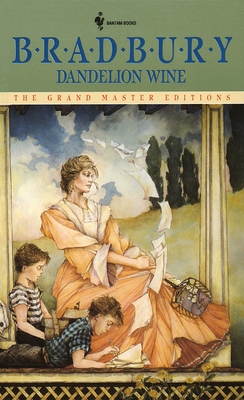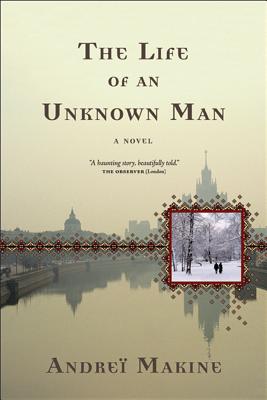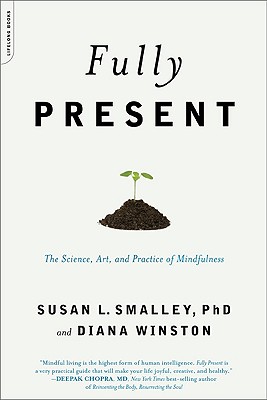 I picked this up to read in a park on a rare, sunny Scottish day while visiting my friends this summer. It was a perfect choice for that moment in time. The novel itself is a celebration of summer and takes the reader through the summer of 1928 from beginning to end in a series of vignettes. The novel starts with the young protagonist truly realizing for the first time that he is alive. The tone of the novel is as changeable as the Scottish weather and the protagonist soon also discovers that to be alive means that one day he must die. This realization on the part of the semi-autobiographical protagonist felt all the more poignant to me with Bradbury's recent death. Reading this novel comforted me and reminded me that while everything must end, we can bottle moments up in our memory to uncork and taste again to comfort us in darker days. Some of the stories made me smile while others led to more serious contemplation and some had me on the edge of my seat. The copy I was reading was my friend's from when she was a kid and we enjoyed poking fun at which passages she had chosen to underline and laughed at how time had passed and her critical reading skills have, thankfully, improved to the point that she is now an author herself. But what I will remember most about the book isn't anything that Bradbury actually wrote. It's the way he reminded me to appreciate the summer while it lasted and the moments I put down the book to do just that. Whenever I see this book it will remind me of a park in Scotland, and the feel of the sun on my face, the breeze in my hair, the tree at my back, and the friend by my side. Dandelion Wine by Ray Bradbury: Buy it or check it out today!
I picked this up to read in a park on a rare, sunny Scottish day while visiting my friends this summer. It was a perfect choice for that moment in time. The novel itself is a celebration of summer and takes the reader through the summer of 1928 from beginning to end in a series of vignettes. The novel starts with the young protagonist truly realizing for the first time that he is alive. The tone of the novel is as changeable as the Scottish weather and the protagonist soon also discovers that to be alive means that one day he must die. This realization on the part of the semi-autobiographical protagonist felt all the more poignant to me with Bradbury's recent death. Reading this novel comforted me and reminded me that while everything must end, we can bottle moments up in our memory to uncork and taste again to comfort us in darker days. Some of the stories made me smile while others led to more serious contemplation and some had me on the edge of my seat. The copy I was reading was my friend's from when she was a kid and we enjoyed poking fun at which passages she had chosen to underline and laughed at how time had passed and her critical reading skills have, thankfully, improved to the point that she is now an author herself. But what I will remember most about the book isn't anything that Bradbury actually wrote. It's the way he reminded me to appreciate the summer while it lasted and the moments I put down the book to do just that. Whenever I see this book it will remind me of a park in Scotland, and the feel of the sun on my face, the breeze in my hair, the tree at my back, and the friend by my side. Dandelion Wine by Ray Bradbury: Buy it or check it out today! Another example of reading a book with good timing, I picked up this novel in a local shop to read on my plane ride back home. Of course, as a Wodehouse novel it was light and hilarious and kept my spirits as high as my body. I've found that after watching the wonderful TV series I can't help picturing Hugh Laurie and Stephen Fry while reading. Normally this type of thing annoys me and is part of why I make such a point of reading a book before seeing an adaptation of it, but Fry and Laurie do such a wonderful job with the characters that in this case I've only found it to enhance my reading experience. Much Obliged, Jeeves by P.G. Wodehouse: Buy it or check it out today!
Another example of reading a book with good timing, I picked up this novel in a local shop to read on my plane ride back home. Of course, as a Wodehouse novel it was light and hilarious and kept my spirits as high as my body. I've found that after watching the wonderful TV series I can't help picturing Hugh Laurie and Stephen Fry while reading. Normally this type of thing annoys me and is part of why I make such a point of reading a book before seeing an adaptation of it, but Fry and Laurie do such a wonderful job with the characters that in this case I've only found it to enhance my reading experience. Much Obliged, Jeeves by P.G. Wodehouse: Buy it or check it out today!
Speaking of reading books before seeing movies, this is something I've been meaning to read for a while because I had several friends in high school who listed it among their favorites. I'm glad the movie opening finally pushed it to the top of my TBR list. I love the premise of the novel: that our wall-flower lead is writing letters using a disguised identity to someone he barely knows but who he thinks will understand. By addressing the reader directly and carefully avoiding giving any details about the letter recipient, it creates a sense of intimacy and puts readers in the middle of difficult situations that most people would normally distance themselves from. It made me feel complicit in the secrets I was being told and I had to remind myself that this was not a real person whose identity I could puzzle out and try to help. On the other hand, Charlie admits to using fake names and changing details to remain hidden, which makes it all the easier to imagine that he is someone that you've met in passing. Charlie may be fictional but his story is true for many people. Chbosky certainly doesn't shy away from truth, which is why this novel has been banned and challenged so often. Not because it misinforms teens or tells them things they don't already know, but because it tells the uncomfortable truth that adults would rather ignore and uselessly try to shield their children from, even if this novel may be exactly what they need. So in trying to protect their children they may harm them by blocking their access to resources that can help. Ah, the eternal irony of banned books. Perhaps one day society will be more afraid of ignorance than knowledge, until then I'm proud to be a member of a profession that fights for the right to read. The Perks of Being a Wallflower by Stephen Chbosky: Buy it or check it out today!
 This novel started out slowly, following the life of Shutov, a Russian writer living in Paris who goes back to Russia for the first time in twenty years. I didn't actually care much about Shutov, so it took me a while to get through his story. He was amusing at times and it was interesting seeing the changes that have occurred in Russia through his eyes, but I didn't care what happened to him. Then Shutov gets put in charge of watching over an old Russian man on his last night before he gets sent to live in a retirement home. The story switches over to the past of this man, Volsky. He lived through the siege of Leningrad, fought in WWII, was tortured into a false confession and sent to a communist prison camp, the whole nine yards. Once we got to his part of the story I finished the book in a night. This might have been related to the fact that at the time I was staying in a questionable motel room with my sister. I was glad for anything that distracted me from my surroundings--especially something that made them seem downright delightful by comparison. Sure Holden Caulfield was in the next room screaming at his girlfriend for being a "phony" at midnight and the sheets were stained with what I hope was ink, but at least we weren't boiling shoe leather to eat! I wish that less time had been spent on the modern-day Russian in the beginning and more time spent describing the past, but overall I enjoyed the novel. If you're looking for a quick and compelling overview of modern Russian history told through the life of a single man, or if you're having difficulty thinking of something to be thankful for this Thanksgiving, this is the novel for you! The Life of an Unknown Man by Andrei Makine (translated by Geoffrey Strachan): Buy it or check it out today!
This novel started out slowly, following the life of Shutov, a Russian writer living in Paris who goes back to Russia for the first time in twenty years. I didn't actually care much about Shutov, so it took me a while to get through his story. He was amusing at times and it was interesting seeing the changes that have occurred in Russia through his eyes, but I didn't care what happened to him. Then Shutov gets put in charge of watching over an old Russian man on his last night before he gets sent to live in a retirement home. The story switches over to the past of this man, Volsky. He lived through the siege of Leningrad, fought in WWII, was tortured into a false confession and sent to a communist prison camp, the whole nine yards. Once we got to his part of the story I finished the book in a night. This might have been related to the fact that at the time I was staying in a questionable motel room with my sister. I was glad for anything that distracted me from my surroundings--especially something that made them seem downright delightful by comparison. Sure Holden Caulfield was in the next room screaming at his girlfriend for being a "phony" at midnight and the sheets were stained with what I hope was ink, but at least we weren't boiling shoe leather to eat! I wish that less time had been spent on the modern-day Russian in the beginning and more time spent describing the past, but overall I enjoyed the novel. If you're looking for a quick and compelling overview of modern Russian history told through the life of a single man, or if you're having difficulty thinking of something to be thankful for this Thanksgiving, this is the novel for you! The Life of an Unknown Man by Andrei Makine (translated by Geoffrey Strachan): Buy it or check it out today! I like the idea of presenting the research that backs up the utility of mindfulness along with information on how to practice it. I think it could have been edited down a lot though. Because it tried to appeal to rational and irrational parts of the mind it included a lot of examples of scientific studies and anecdotes that covered the same ground. I also felt that there was a bit too much of both. Studies were often described even if the author admitted that they were not rigorous enough to suggest anything other than the need for further research in that area. I felt that a lot of these could have been cut--this is for lay people and not a grad paper after all. The writing also could have been clearer and better worded at times. For example: "Today the remnants of these readily made fears are evident by the disproportionate number of phobias that people have toward snakes and spiders compared with things to which they are exposed far more often, such as kittens or toothbrushes" (p.103 in the paperback edition). I believe the real reason people are more afraid of snakes than toothbrushes is because one is possibly poisonous and one is a freakin' toothbrush! It would have made far more sense if they had said cars or hamburgers, which both actually have a chance at killing you yet are less likely to scare people. I suppose it's possible they were trying to be funny, but it really didn't seem like that. It's disappointing that the book isn't better written because I think it contains a lot of great information and there's several practices from this book that I found helpful and am implementing in my life. I do recommend this book because it does have great nuggets of information in it, but I'd also recommend skimming through a lot of it and just focusing on the parts that you think will be useful. Fully Present: The Science, Art, and Practice of Mindfulness by Susan L. Smalley, PhD and Diana Winston: buy it or check it out today!
I like the idea of presenting the research that backs up the utility of mindfulness along with information on how to practice it. I think it could have been edited down a lot though. Because it tried to appeal to rational and irrational parts of the mind it included a lot of examples of scientific studies and anecdotes that covered the same ground. I also felt that there was a bit too much of both. Studies were often described even if the author admitted that they were not rigorous enough to suggest anything other than the need for further research in that area. I felt that a lot of these could have been cut--this is for lay people and not a grad paper after all. The writing also could have been clearer and better worded at times. For example: "Today the remnants of these readily made fears are evident by the disproportionate number of phobias that people have toward snakes and spiders compared with things to which they are exposed far more often, such as kittens or toothbrushes" (p.103 in the paperback edition). I believe the real reason people are more afraid of snakes than toothbrushes is because one is possibly poisonous and one is a freakin' toothbrush! It would have made far more sense if they had said cars or hamburgers, which both actually have a chance at killing you yet are less likely to scare people. I suppose it's possible they were trying to be funny, but it really didn't seem like that. It's disappointing that the book isn't better written because I think it contains a lot of great information and there's several practices from this book that I found helpful and am implementing in my life. I do recommend this book because it does have great nuggets of information in it, but I'd also recommend skimming through a lot of it and just focusing on the parts that you think will be useful. Fully Present: The Science, Art, and Practice of Mindfulness by Susan L. Smalley, PhD and Diana Winston: buy it or check it out today!
No comments:
Post a Comment